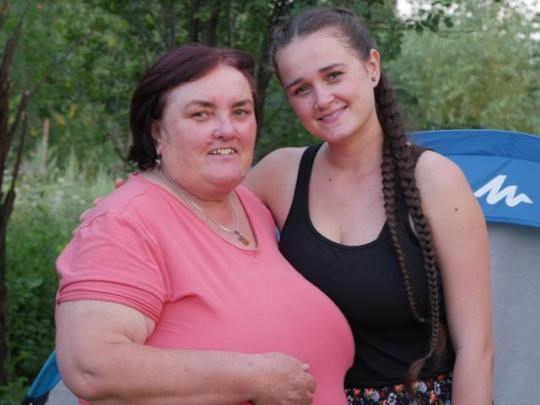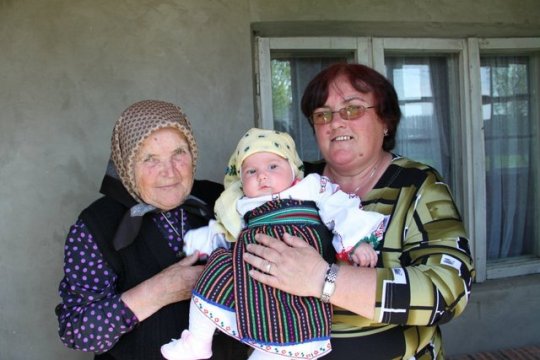Don't wanna be here? Send us removal request.
Text
HI :)
With the photos and texts that follow, I would like to present what heritage means to me, how I interact with my culture, loved ones, and what are the difficulties and beauties of being Csángó. The more I am away from home, and the more I explore the outside world, the more I feel like I am straying away, but there are certain feelings that only my home and people from there can spark in me. The first two posts are in English, Hungarian and Csángó dialect, the next two in English and Hungarian, the following two in English, and the two after have only very brief descriptions, trying to project the gradual alienation from my culture as the time passes. Despite being away, not practicing the dialect, the customs anymore, the feelings that I have about my culture, the kind of connexion that I have with it will never fade, because my culture and the people belonging to it are the core that sustains me even when I am away. Everything starts with them, and nothing compares to them, although everything is in comparison to them.
I hope you enjoy the stories, the people, and that at least some of the love that I have for this culture would come through for you :)
0 notes
Photo
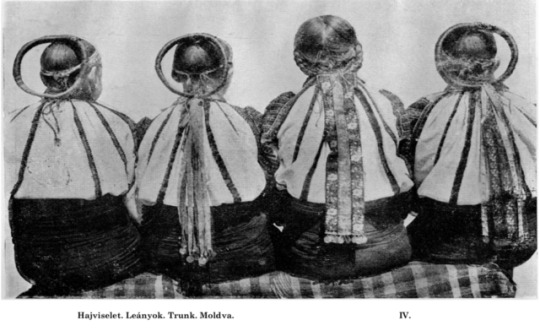
With this project I would like to pay an homage to the women that were born before me, that shaped me into the woman I am today. Our hair and how we wear it is one of the ways we can share information about who we are, and I chose to plate my hair, an activity that I share with my ancestors, while telling the stories of: my great-great-grandmother that would sing when she was happy, and would find consolation in singing when she was sad; my grumpy great-grandmother that became joyful from dancing. My grandmother who is the greatest story-teller that I ever met. My mother, spent most of her time growing up surrounded by these three women, absorbing their passion and knowledge about life and every days, and then carried on to transform her passion and knowledge into a career as a heritage keeper, that would afford her children, including me, a formal education. While growing up, their wisdom about life, values and womanhood has inspired me, and I would also like to give these formidable women credit for the love that I have for the practices inherited from them. Although we lived in different times, with various challenges, and talents, we are also very similar in many ways: we share the love and passion for our everyday practices and culture. My knowledge is the result of their joy and enthusiasm, and they are my most precious heritage, and I am beyond happy to be able to continue their spectacular discourse.
3 notes
·
View notes
Photo
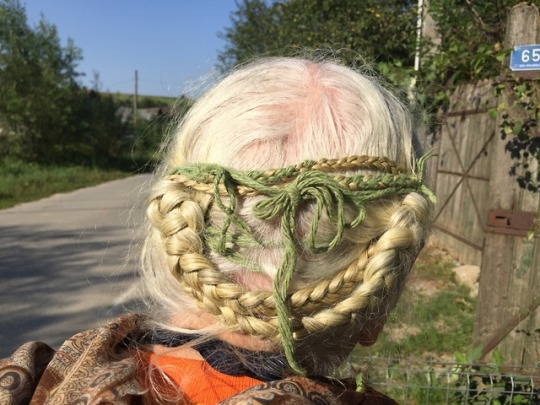
I had long hair since I was 9. My mother used to braid it, and she would always be so proud of how beautiful, shiny and thick my hair was. She was so proud every time she would do a special hair-do for me, and then someone would copy it. I don’t remember her having long hair, she only did before I was born. She told me how girls, only girls had long hair back then, wore their hair, and what it meant. Little girls would wear two plaits, big girls would only wear one plait, but would wear a handmade, decorated fabric hair band. The plait with the lines stroking upwards was the everyday way of plating, if the lines would stroke downwards, it meant that someone in their life has passed away, and they are grieving. If someone lost a person that was very close to them, the girls would let their hair out, the only time they didn’t have it in some sort of plait. When women got married, they had to start covering their hair, so they needed a hairdo that would stay under the head dresses, so they would plait two plaits, and then they would tie them up in an up do, that was then covered. On special occasions, such as weddings, women would wear a special head wear that would require proper preparation, as they had to roll their hair onto a wooden circle at the back of their head, cover and secure the hair with hand kerchiefs and needles, and then cover it with the actual hair dress. The timeline of a woman, through how she wears her hair…
6 notes
·
View notes
Photo
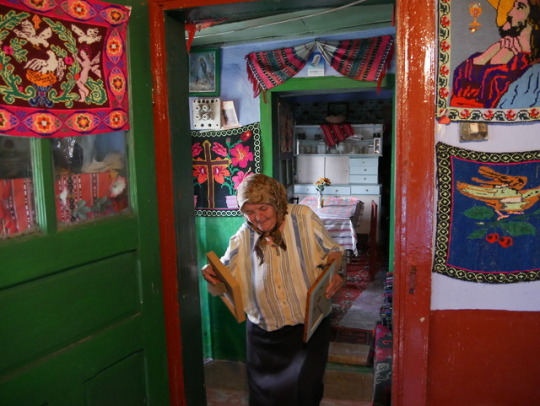
One day, after years of already being away, when I was home visiting, my mother’s mother, my then already last living grandparent payed us a visit. I was extremely happy to see her and as always she was happy too. I, full of excitement, started telling her about my new life, where I was, what was I doing. I knew that she would be very happy to hear news from me, being given that technology doesn’t have a place in her life, so calling her on the telephone was not an option. As I was telling her about myself, I could see how fascinated she was, taking in every single word without interrupting me once. I could see she was analysing me, measuring me, but I didn’t care because she hadn’t seen me in a while, I looked different so I carried on very happy that I had found my audience, and I delivered a very long monologue. In the end, I asked her a question, and she did not reply. First, I thought she didn’t hear it, so I repeated it in a way I was sure she heard it, then I waited for an answer. She realised then, that now is her turn to talk, she understood that I asked something. She said in an archaic, beautiful and simple Hungarian: My sweet girl, I didn’t understand a word you said.I realised then, that we don’t share the same language anymore. That was one of the greatest shocks of my entire life, and it was horrible, because I realised that I worked so hard to blend into the new environments that I forgot about their mentality, style, priorities, simplicity, and how to speak, so that the people from where I come from understand me. After she said those words, I remember I felt desperate, and I tried explaining her what I just said in her language, MY language which I understood, and took for granted, but, it turned out, not speak, so I had to give up. I realised it was a disaster, I was a disaster and that language is very important when it comes to identity.
I never felt so ashamed, shattered and alone in my life. That was the first time I realised that even though the biggest part of my soul was in the village with the people that live in it, I will never be able to belong there fully anymore, but it didn’t mean I would belong anywhere else. I am stuck between cultures that have nothing to do with each other.
Photo: Eloisa Quinto
1 note
·
View note
Photo
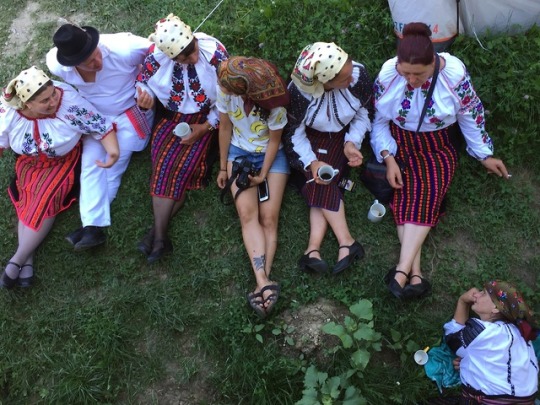
Dance is very important for me. Since I started studying about dance, and tried to find out what makes a Csángó dance Csángó, I was faced with my own Csángó-ness. My entire life I had to prove that I am Hungarian. I had to realise, that if I say that I am Hungarian, I am stripping down layers of who I am. I am Csángó, and although Csángós are Hungarians, we are not only Hungarian. Part of it is also having been called a Romanian throughout high school, although I was talking to everyone in Hungarian. Part of it is also when people from Hungary don’t understand that there are Hungarians in Moldova, and when I tell them that we are from Romania, they just say “Transylvania!”. Next to my mother’s and grandmother’s songs, dances and prayers, I was familiar with the Romanian folklore too, as that was the one represented on TV. I could read Romanian before I could read Hungarian. And yes, I am Hungarian, but I am the kind of Hungarian who had to experiences that Hungarians from Hungary wouldn’t have to face. I have learnt so much about non-Hungarian things, that I simply love, and would never want to not know. I wouldn’t take anything back, but my non-Hungarian experiences shaped me into what I am. This is why I don’t just want to say I am Hungarian, it feels like betraying my roots. I am Csángó, Csángó-Hungarian at most.
Nagyon fontos az életemben a tánc. Amióta elkezdtem tánccal foglalkozni, és megpróbáltam megtudni, hogy mitől csángó a csángó tánc, kénytelen voltam szembesülni saját csángóságommal. Egész életemben valamilyen formába bizonygatnom kellett, hogy magyar vagyok. Rájöttem arra, hogy ha azt mondom hogy magyar vagyok, akkor az lecsonkítja azt ami vagyok. Csángó vagyok, ami bár magyar, nem csak magyar. Velejár az, hogy egész gimis éveimben, erdélyben, én voltam a román az osztályban, bár magyarul kommunikáltam mindenkivel; az, hogy gyakran magyarországon azt nem értik, ha azt mondom, hogy Moldvai vagyok, és ha azt mondom, hogy Romániában van, akkor rávágják, hogy “jajjjj, erdélyi.” Nagymamám és mámika énekei, táncai, imái mellett a román folklórt is ismertem kiskorom óta, hiszen az ment a TV-ben. Románul olvastam előbb, mint magyarul. És igen, magyar vagyok, de olyan magyar, aki olyanokat élt át nemzetisége miatt amiket egy magyarországi nem kell átéljen. Olyanokat tanultam meg, amiket sosem szeretnék elfelejteni, amitől nem szeretnék elidegenedni. Nem, nem bánok semmit, de ezek mind másé tettek. Ezért nem szeretem csak azt mondani, hogy magyar vagyok, mert azt érzem, hogy ezzel elárulom saját magamat. Én csángó vagyok, legfeljebb csángó magyar.
0 notes
Photo
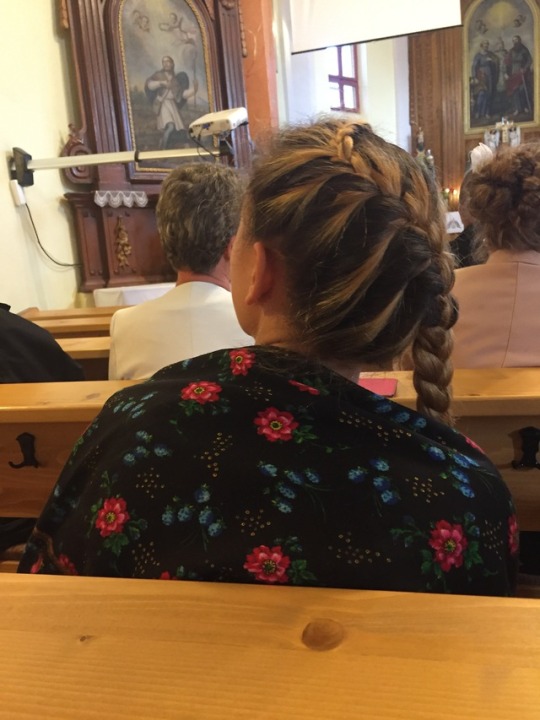
Csángó people love singing, dancing, and showing off their talents. But there are times when they don’t want to sing, dance or even talk to other people. There are people chanting with their entire being, and then some who don’t say a word. There are Csángós for whom being home is extremly important, but then others cannot wait to be away. Some of them love animals, some of them are vegan, some of them have piercings. Some of them don’t care about being Csángó, being a catholic is enough for them. Some of them know they are Csángós, others don’t. There are some who like being Csángó, and then others don’t like it. Some people go to church more, others go to church less. There are some who know everyone in the village, there are others who spend way too little time in their village for them to interact with everyone. But regardless of what they are doing and prefering, they are all Csángós. Doing or not doing certain things doesn’t make any of them less of a Csángó. I can be like this or like that, but I am always Csángó.
A csángók nagyon szeretnek énekelni, táncolni, megmutatni amit tudnak. De néha nem akarnak sem énekelni, sem táncolni, sem másokkal beszélni. Vannak akik úgy hujjogatnak, mintha az életük múlna rajta, van aki meg sem szólal. Van akinek otthon lenni a legfontosabb, de van akinek a szíve más helyekre is vágyik. Van aki megmondja egy égre pillantásból, hogy mi less másnap az időjárás. Az élet sokkal jobb háziállatokkal. Van aki vegan és piercinges. Van aki nem csángó, hanem katolikus. Van aki tudja, hogy csángó, van aki nem. Van aki szeretne csángó lenni, van aki nem. Van aki többet jár templomba, és van aki kevesebbet. Van aki mindenkit ismer a faluban, van aki csak néha jár haza. De mind csángó, mert Csángónak lenni nem függ egyiktől sem a fenti listából. Én ilyen, meg ilyen csángó vagyok.
0 notes
Photo
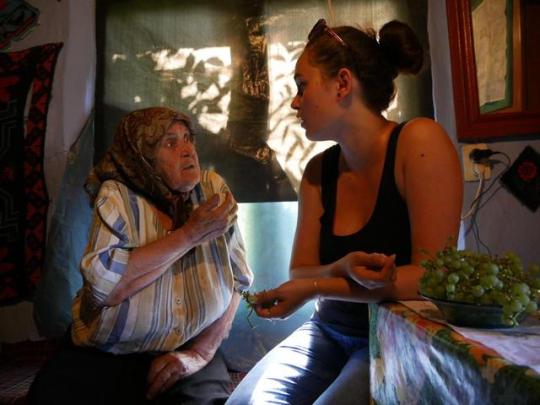
“We were going to church at the first chime of the bell, and back then we wouldn’t stop in the church to say the rosary, people were not saying it before mass like now, so we were walking down from the church, until the school, back up to the church, and then down to the school again. If you were walking with a girl, your best friend, for example, everyone wouldn’t walk with everyone, when the lads saw you walking, they would push the other girl away, and they would start walking with you. The best friend would be alone like dog poop in the snow. If the friend also had a suitor, then one of the lads would approach the other: ’Let’s take the girls for a walk.’ One would walk with me, the other one with my friend, and we would walk in couples, would talk, and walk.”
“Mentünk előharangszókor misère, s te, akkor nem álltál meg a templomban, hogy mondjad az olvasót, nem is mondták akkor, azután sétáltunk le, lefele a templomtól, egészen le, le az iskoláig; aztán visszasétáltunk, utána pedig vissza az iskolához…s ha mentél egy lánnyal, a barátnőddel például, mert mindenkinek volt egy barátnője akivel barátkozott, nem sétált mindenki mindenkivel, amikor a legény meglátta, hogy hol vagy, akkor odament, ellökte a barátnődet, s aztán együtt sétáltak. És a barátnő egyedül maradt mint a kutya szar a hóban. Ha a másiknak is volt valakije, és lehetett tudni, hogy ki ő, akkor azt a legényt hívta magával, aki a barátnőnek udvarolt: “ Gyere csak, te, vigyük el a lányokat sétálni.” Az egyik engem vitt, a másik a barátnőmet, s aztán mentünk párban, sétáltunk, beszélgettünk.”
„Mentük előharangszókor misère, s mãi, akkor nem álltál mág e templomba, hogy mondjad ez olvasót, nem es mondták, s aztá sétáltunk ott lá, templomtól láfálá, ott lá, lá, iskoláig, s még vissza, s még lá iskoláig, s még… s ha mentél egy cinkával, egy lányval mentél, e továrasadval de exemplu, márt vót mindenkinák párja, továrasa, melyikvál bárátkoztál, mindegyik nám ment ez ágész világval tám... akkor e lágény mikor mágókilta, hogy hol vagy, akkor ment oda s lüktá ál e másikat s aztá ment válád, sétáltál. S ámáz e másik, ki vót maradva mind e kucsaszar e hóba. Ha e másiknak es vót valakijá, ha tudta, hogy van, akkor vettá azt e lágényt, melyik az e barátja: ’Hájcsak brei, vegyük ál e cinkákat.’ S ez egyik vett el ingem, másik vettá ál e másikat, s aztá mentünk párasan, sétikálgattunk, beszélgettünk.”
Bejan Erzsá, 2018
Photo credit: Eloisa Quinto
0 notes
Photo
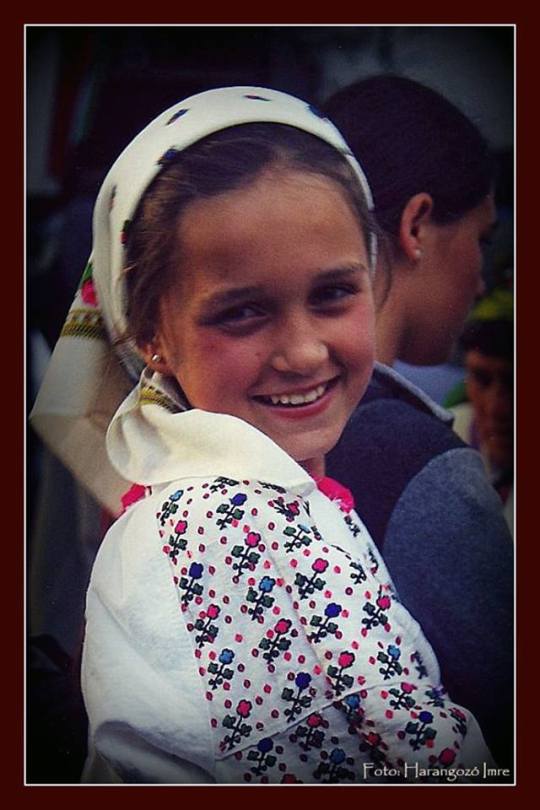
If I had to describe myself in two words, I would probably say „woman” and „Hungarian”. All my life I had to negotiate both, and then stand up for being both. These two words though, most simply put, define what I am at the moment. These two words have brought me so many opportunities, but have also been the reason for some of my biggest challenges in life. The people belonging to these two groups have been my biggest support systems, the springs of energy that I keep returning to whenever I am low. They inspire me, stimulate me, uplift me, and help me get the best out of myself. But I am not just any woman, I am a CINKA, and I am not just any Hungarian, I am CSÁNGÓ. Let me show you what that means to me!
Ha két szóval kellene leírnom magam, valószínűleg azt mondanám, hogy “nő” és “magyar” vagyok. Egész életemben alkudoznom kellett mindkét fogalommal, és megvédenem kellett őket. Ez a két szó írja le legegyszerűbben a mivoltomat. Ez a két szó rengeteg lehetőséggel szolgált, de egyben életem legnehezebb kihívásai voltak. Az emberek, akik ezekhez a csoportokhoz tartoznak a legerősebb támaszaim, belőlük merítek energiát akárhányszor elfáradok. Megihletnek, serkentenek, felemelnek, és segítenek abban, hogy a legjobb formámat adjam. De nem vagyok akármilyen nő, hanem CINKA vagyok, és nem vagyok akármilyen magyar, hanem CSÁNGÓ. Hadd mondjam el, hogy ez mit is jelent nekem valójában!
Ha két szóba kéne leírjam magamat, igazából azt mondanám, hogy „asszonyféle-fejérnép”, s „magyar” vagyok. Egész életembe örökké kellett ezket alkudozzom s megvédjem. Ez e két szó írja le legjobban ez eddigi életemet. Ez e két szó sokat szolgált ingemet erősen, de sokat provokált! Azok az emberek mellyikek ehez e csokorhoz tartaznak támasztnak ingemet legjobban, ha elfáradok örökké ők adnak nekem erőt. Ők inszpirálnak, biztatnak s felemelítnek, segítenek, hogy e legjobb formámat adjam. De nem vagyon akarmilyen fehérnép, hanem CINKA, s nem vagyok akarmilyen magyar, hanem CSÁNGÓ! Hadd csak el hogy nevezzem el én, mire menen ez igazából!
1 note
·
View note
